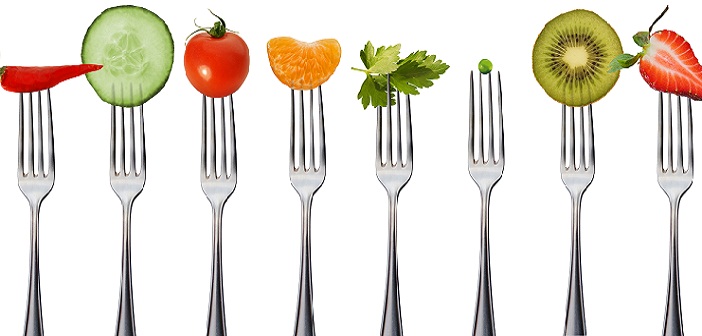Copenhagen, Bulletproof, The Zone, South Beach, Atkins, TLC, Mind, Ketogenic, Whole30, Low FODMAP… What do all these names have in common? They all refer to diets. Some are very healthy and others not so much. The word diet has many negative connotations, as it’s often associated with restricted eating, deprivation and hunger. Have you heard that diet has the word DIE in it? Joking aside, going on a diet means that someone has a specific health goal in mind, but the word diet simply refers to the food a person eats on a regular basis.
I’d like to focus on what we should be eating on a regular basis, not the things we’re often told to avoid. If we eat more healthy foods, they will naturally crowd out the less healthy items from our diet. Vegetables are the number one thing most people need to eat more of. These come in all shapes and sizes, all kinds of colors and unique nutritional profiles. Each vegetable has their own specific combination of vitamins, minerals and micronutrients, pigments like anthocyanins, carotenoids and xanthophylls, flavonoids like catechins, hesperidin and resveratrol, and sulfur-rich compounds like allacin, and sulfuraphanes, to only name a few. These have multiple health benefits, too many to list here. Fruits also contain many of these nutrients. They’re a rich source of a long list of vitamins, minerals and other phytronutrients (phyto meaning plants). I have to admit, it drives me crazy when I hear that fruits “…are just filled with sugar and fiber”. That is so far from the truth! Generally, fruits should also be an important part of our regular diet. It doesn’t mean that we need to eat fruits in the same quantity as vegetables, but they do provide nutritional diversity which is something we need.

Another important feature of a healthy diet is fermented food. These foods contain probiotics, the helpful organisms that inhabit our digestive tract, our respiratory tract, our skin… in essence, every part of our body! These organisms can include bacteria and fungi, and are referred to as the human microbiome. According to a study published in 2016 in the journal PLOS Biology, bacteriamake up about half the number of cells in the human body. There’s a lot of research going into studying our microbiome, with more and more evidence that they play a role in mental health, body composition, cardiovascular health, immunity and more! Probiotics can be found in fermented veggies, yogurt, kefir, yakult, natto, and kombucha.
Finally I wanted to give a shout out to fiber. Some may think fiber is just something extra our body doesn’t digest, and thatit doesn’t provide any nutritional value, that’s not the whole truth.Fiber consumption is linked to decreased cancer risk, it helps balance blood sugar, stabilizes cholesterol levels, and has many other benefits. Let’s give fiber some love, becauseit also supports a healthy microbiome. Fiber feeds the probiotics in our gut, it helps those little guys thrive so we can thrive too. Fiber rich foods include beans, legumes, whole grains, fruits and vegetables.
Now I’m not saying there aren’t times when we need to be more careful with what we’re eating.This is the case when people have a medical condition or have unique health goals. Some people may be allergic or have sensitivities to certain foods. What I mention above are general suggestions. For the love of food, don’t avoid tomatoes because they have too much sugar! Eat naturally, include more things that come from the ground or a tree, and you can’t go wrong.

This article appeared in the beijingkids September 2019 Family Foodies issue




